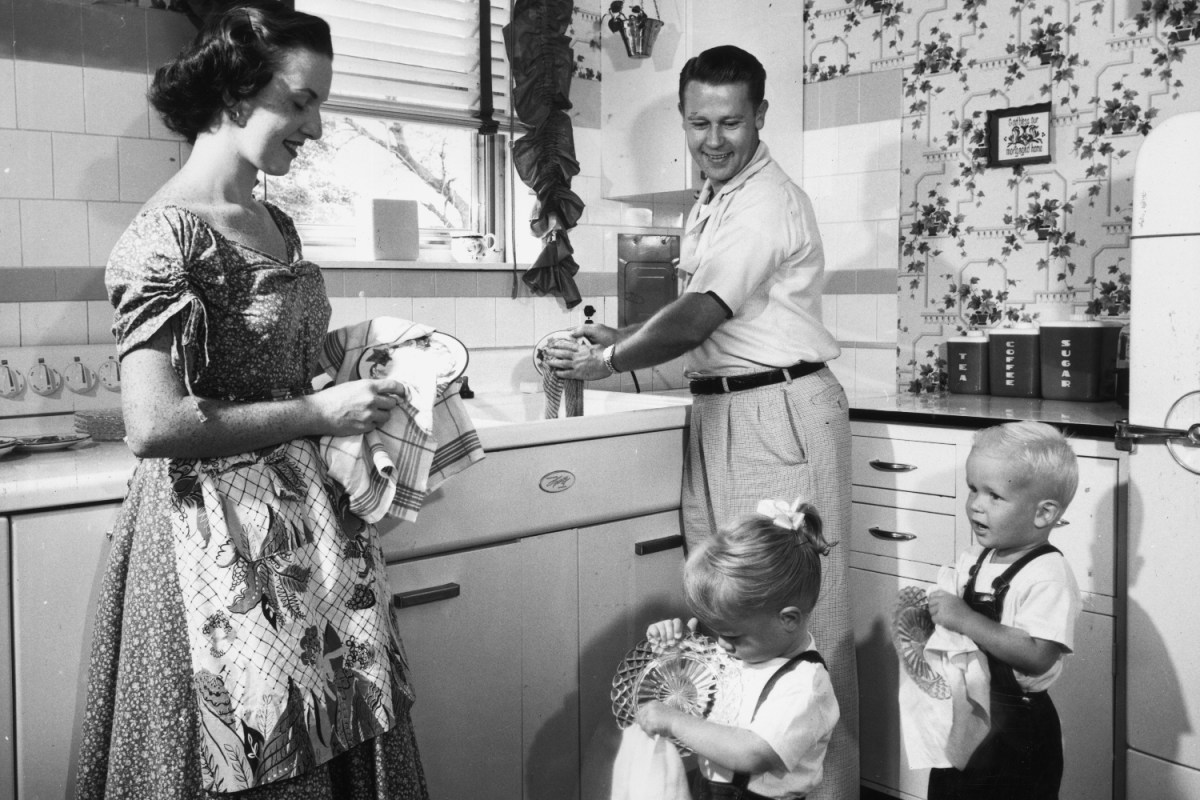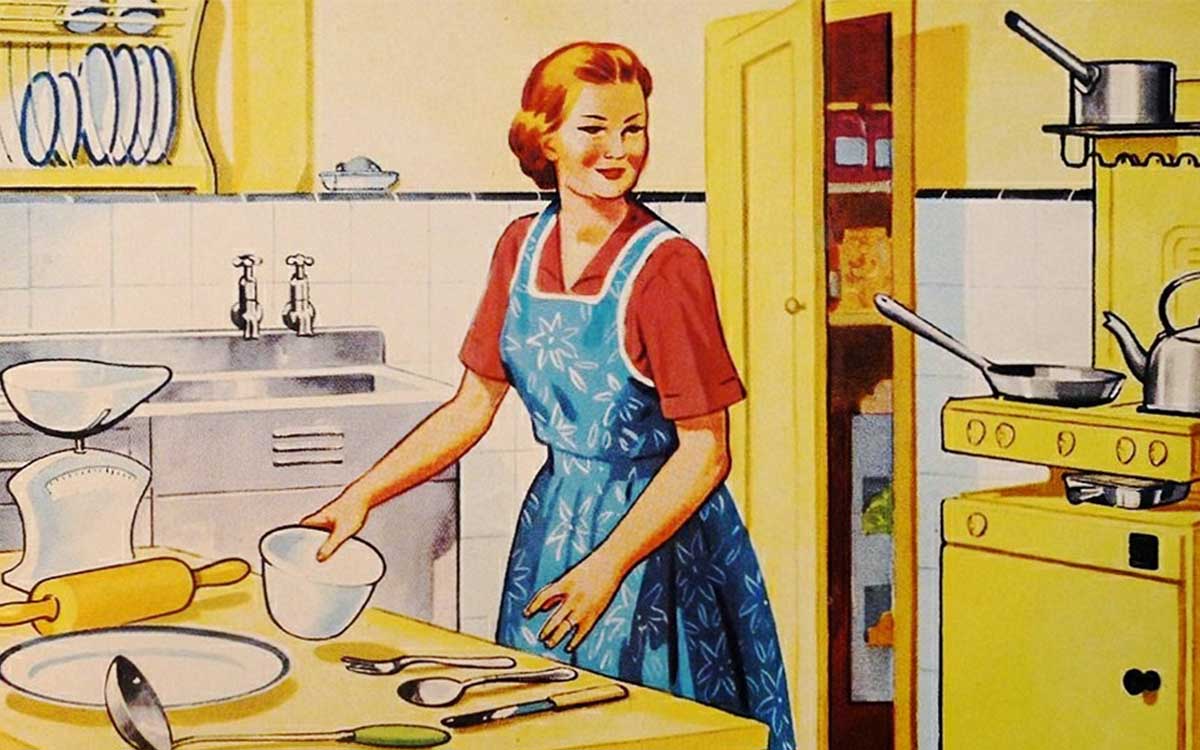I do not, as members of my generation have been known to say, dream of labor. I do not aspire to hard work in my life in general, and I certainly don’t dream of laboring in my relationships. Unfortunately, while I would prefer a relationship in which I am constantly wined, dined and pampered, most long-term partnerships will, at some point or another, dissolve into a daily ritual of domestic duties. You move in together, you get a dog and maybe a kid or two, or then you spend the rest of your lives taking turns cleaning the house and buying groceries and doing laundry. It sounds horrifying and monotonous, sure, but it’s either that or doing all those same things by yourself and then dying alone, so pick your poison.
Anyway, that’s not the point. The point is that, according to a new study, the key to the closest thing any of us are going to get to a satisfying relationship is sharing that horrifying monotony, rather than divvying it up. It’s no secret that men have a pretty bad reputation for neglecting their share of household duties, but it turns out that even when chores are split up evenly, relationships suffer if those responsibilities aren’t shared, e.g., if you always do the grocery shopping and she always does the laundry.
In an analysis of nationally representative surveys from the 1990s and early 2000s that gathered information on family life and time use, University of Utah associate professor Daniel Carlson noticed that couples who shared the same tasks reported higher levels of relationship satisfaction. “The number of equally shared tasks matters a great deal for both men’s and women’s relationship quality,” wrote Carlson in a Council for Contemporary Families research brief for the paper, to be published in the journal Sex Roles. “Indeed, among recent cohorts there is evidence to suggest that it matters as much if not more than each partner’s overall proportion of housework.”
This doesn’t mean that you have to buy a second vacuum so you can both literally do the same chores at the same time — that would probably be a huge waste of time and energy. Rather, Carlson’s research suggests that couples should switch off household responsibilities, rather than each partner sticking to their assigned chores. According to Carlson, it’s the feeling of fairness that matters most: “For both men and women, the number of equally shared tasks is associated with a greater likelihood of A) feeling their relationship is fair to both partners, B) feeling satisfied with their own housework arrangement, and C) feeling satisfied with the relationship overall.”
This, Carlson speculates, may have to do with the simple fact that not all chores are created equally. More onerous or tedious chores like doing the laundry or cleaning the bathroom may be significantly less enjoyable than, say, cooking or grocery shopping. So if you’re spending all your time in the kitchen while your partner is stuck scrubbing the bathroom floor, that arrangement probably wouldn’t feel particularly fair or satisfying even if you’re technically distributing the total volume of household chores evenly.
So, unless you can afford to pay other people to attend to your domestic duties while you and your partner actually get to enjoy your lives, it seems the next best thing is sharing your chores — which really kind of sucks, honestly.
The Charge will help you move better, think clearer and stay in the game longer. Subscribe to our wellness newsletter today.


















